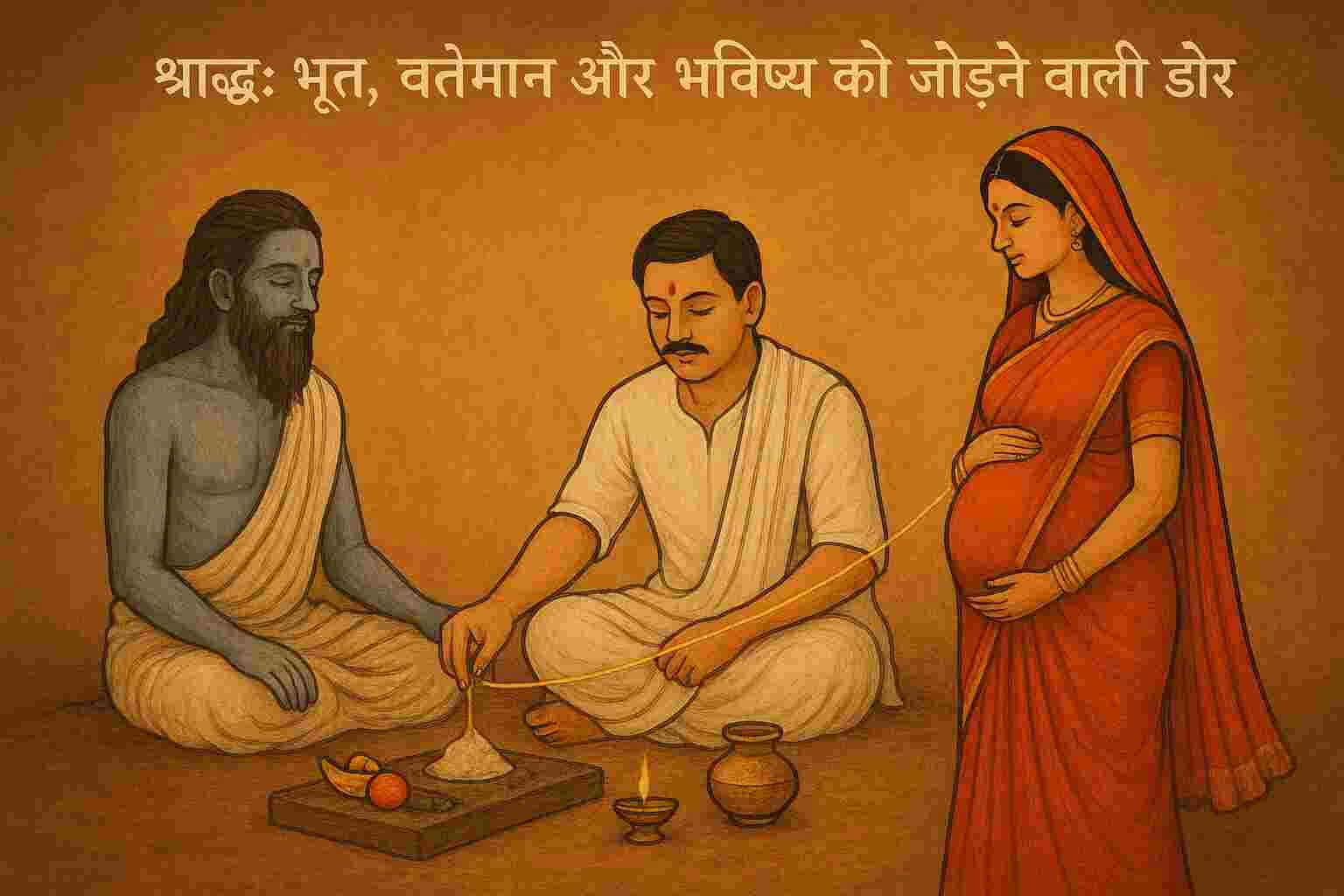
India Prime History Desk – Devender Singh, Jaipur According to Hindu scriptures, Shraddha is such a sacred duty which is connected with faith, devotion and debt. This act is a religious method of expressing gratitude towards the ancestors and repaying their debt. According to the story described in the Mahabharata, when Karna reached heaven, he was served gold and silver instead of food. The gods told him that throughout his life he donated, but he never offered tarpan to his ancestors, hence this was the result. Then Karna asked for an opportunity to return to the earth and perform Shraddha during the fifteen days of Pitru Paksha. On the basis of this story, the tradition of Shraddha Paksha is considered to have been established. Shraddha is also described in detail in Garuda Purana, Manusmriti and Garbhopanishad. In Manusmriti it is said that ancestors are satisfied through sesame, water and food. In the Krishna Paksha of the month of Bhadrapada, when the gate of Yamaloka opens, it is believed that the ancestors come to the earth and accept tarpan from their descendants. This is the reason why every person should perform Shraddha of his deceased ancestors during Pitru Paksha.
The day on which a person died, Shraddha is performed every year in Pitru Paksha on that date, but this date is according to the Hindu calendar, not the English calendar. If the date of death of someone is not remembered, then on the last date of Pitru Paksha — “Sarvapitri Amavasya” — a collective Shraddha of all known and unknown ancestors is performed. The method of Shraddha includes tarpan, pind daan, chanting of mantras, feeding Brahmins, cow donation etc. During Shraddha it is also believed that the ancestors are present in different forms—sometimes in subtle form, sometimes in the form of Brahmins, sometimes they give indications through dreams, and especially in the form of crows, to whom offerings are first given. Seeing the crow accepting food is considered as a sign that the ancestors are satisfied.
Whose Shraddha is not performed
In Hinduism, it is also believed that Shraddha of some dead is not performed. Shraddha of small children, who have not undergone the Upanayana (sacred thread ceremony), is not done because they are considered beyond sin and virtue and their soul is automatically liberated. But if a child has undergone the Upanayana ceremony or has been married, then his Shraddha is performed properly. Thus, Shraddha is not just a ritual, but a feeling of devotion, remembrance and duty towards ancestors which keeps us connected to our roots. In all civilizations there has been a tradition of honoring ancestors, but in Hinduism it exists in the deepest and most systematic form.
In Hinduism, Shraddha is such an act which is performed to fulfill devotion, feeling and Pitru debt. According to tradition, the right to perform Shraddha has mainly been given to men, especially the son. Scriptures say that “Pitreṇa pitaraḥ tripyanti” meaning the ancestors are satisfied with the Shraddha performed by the son. This is the reason why when someone dies in the family, his son is given the responsibility of performing Shraddha, Tarpan and Pind daan. If there is no son, then grandson, brother, nephew or other close male relative can perform this act.
Can women not perform Shraddha?
Now the question arises, can women not perform Shraddha? It is not written clearly anywhere in the scriptures that women are unfit to perform Shraddha. Yes, in the traditional perspective they were not kept as yajman, but this was a social arrangement, not a religious prohibition. If a woman does not have a husband, no son, or she herself is motivated by devotion towards ancestors, then she can perform this act properly under the guidance of Brahmins. In today’s time, daughters are also performing Shraddha of their parents, especially when they served them throughout life or when there is no other male member in the house. At many pilgrimage sites—like Gaya, Kashi, Nashik etc.—women are now seen performing Pind daan and Tarpan, and this is also considered according to scriptures.
Rules to be followed during Shraddha
During Shraddha, some special rules must be followed—such as eating sattvic food on this day, observing celibacy, and avoiding tamasic things. Shraddha is not performed on special days like Ekadashi, Sankranti etc. Along with this, if someone’s horoscope has Pitru dosha—related to the dissatisfaction of ancestors or incomplete acts—then during Shraddha special remedies, such as Pind daan in Gaya or tarpan with special mantras, are mentioned in the scriptures.
Most religions have traditions of honoring ancestors on specific times — such as Shraddha (September–October), Qingming (April), All Souls’ Day (November 2), Ghost Festival (July–August), Day of the Dead (November 1–2) etc. Population data shows that Christianity is the largest, Islam is the fastest growing, and Hinduism remains stable with about 15% share. Other religions and folk beliefs also make up a significant portion, and the number of secular people is also around 15–16%.
Population data shows that Christianity is the largest, Islam is the fastest growing, and Hinduism remains stable with about 15% share.
Table of Traditions
| Religion / Culture | Tradition | Time of Celebration (Date/Month) |
|---|---|---|
| Hinduism | Shraddha, Pind daan, Tarpan | Pitru Paksha — in Krishna Paksha of Bhadrapada month, usually in September–October |
| Buddhism | Ullambana / Ghost Festival (Hungry Ghost Festival) | 15th night of the 7th month of Chinese lunar calendar — falls in July/August |
| Christianity | All Souls’ Day (Remembrance of all souls) | November 2 — celebrated in Catholic tradition |
| Chinese Culture (Taoist/Buddhist) | Qingming Festival (Tomb-sweeping and offerings to ancestors) | 15th day after Spring Equinox — between April 4 to 6 (in 2025, April 4) |
| Egyptian Civilization (Ancient) | Worship of the dead, mummies, food in tombs | No specific modern date, these were traditional practices |
| Mayan Civilization | Day of the Dead (in Mexico) | November 1–2 (around All Saints’ / All Souls’ Day) — Mexican “Día de los Muertos” |
| African Traditions | Ancestor Worship | No single uniform date; depends on local customs |



